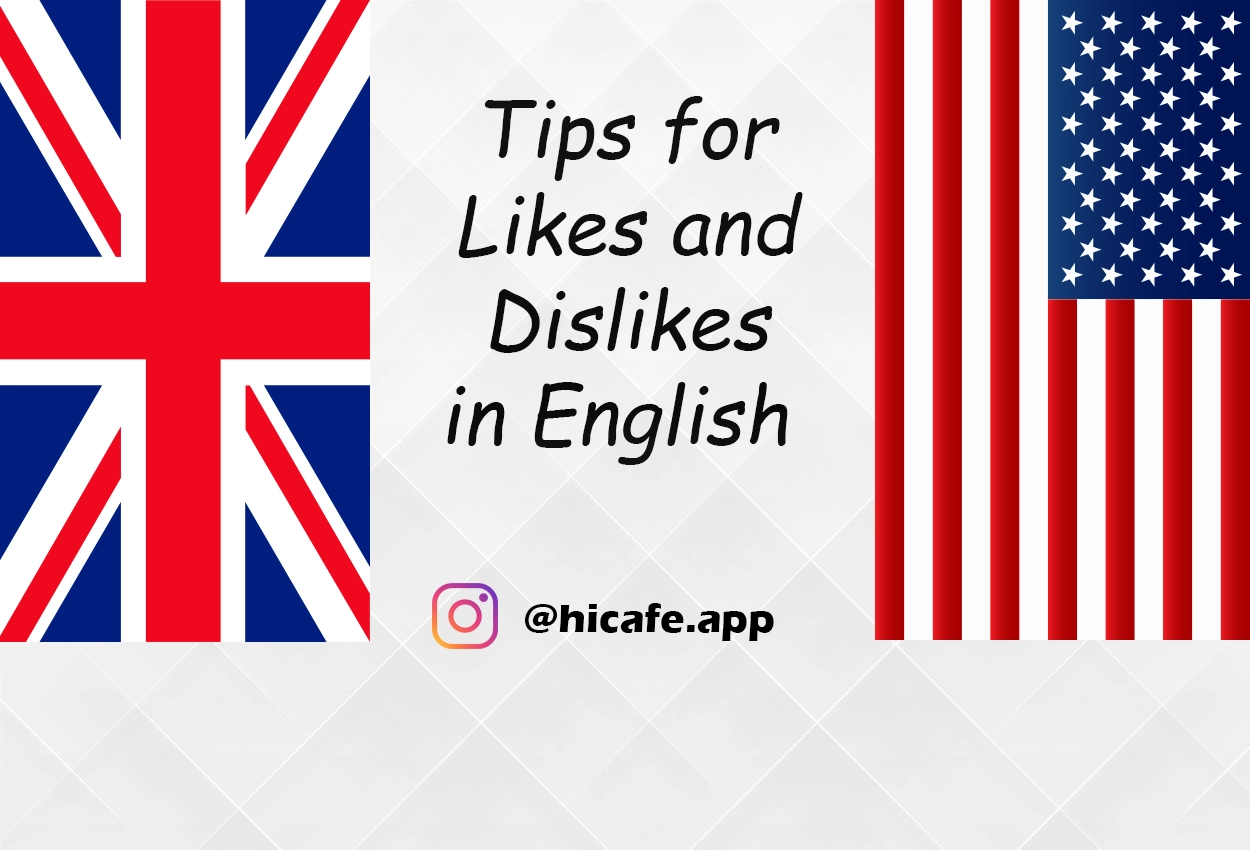Talking about your likes and dislikes is an essential part of expressing your personality and preferences. This lesson explores a range of phrases you can use for expressing likes and dislikes such as to express your feelings, from loving something to really disliking it, and everything in between.
Previous Conversation Tip Lesson
Agreement and Disagreement Expression in English
How to Express Likes and Dislikes in English
Here are different ways to express your preferences running from totally loving to being indifferent to disliking something.
If you love something
Click here to practice this conversation tip in Instagram.
- I love traveling to new places.
- I adore listening to classical music.
- He’s mad about vintage cars.
- She’s crazy about her puppy.
If you like something a lot
Click here to practice this conversation tip in Instagram.
- He’s fond of spicy food.
- I like playing tennis very much.
- She really likes that new restaurant.
If you like something
- She quite likes hiking in the mountains.
- I like painting.
If you neither like nor dislike something
Click here to practice this conversation tip in Instagram.
- I don’t mind waking up early.
In reply to a question if you like something or not, you can say:
- I don’t really care either way.
- It’s all the same to me.
If you don’t like something
Click here to practice this conversation tip in Instagram.
- He doesn’t like commuting very much.
- She’s not very fond of loud parties.
- He’s not a great fan of reality TV shows.
- Riding roller coasters isn’t really her thing.
- I dislike cleaning the house.
If you really dislike something
Click here to practice this conversation tip in Instagram.
- I don’t like noisy places at all.
- She can’t stand long flights.
- He can’t bear dishonest people.
- I hate riding a horse.
- She detests rude behavior.
- He loathes doing laundry.
Things to remember
- Dislike is quite formal.
- Fond of is normally used to talk about food or people.
- The ‘oa’ in loathe rhymes with the ‘oa’ in boat.
Grammar Note
- To talk about your general likes or dislikes, follow this pattern: like something or like doing something.
- Remember that “I’d like…” is for specific present or future wishes.
“I like reading books” = I like reading generally.
“I’d like to read a book this afternoon” = I want to read at a specific time in the future.
Common mistake
- Be careful where you put very much or a lot. These words should go after the thing that you like.
For example, “I like reading very much.” NOT “I like very much reading.”
Conclusion
Understanding and using these expressions will enrich your conversations and help you connect better with others by sharing your interests and tastes.
Next Conversation Tip Lesson
Advice and Suggestions in English
Related Conversation Lessons
None
Practice Conversation with HiCafe App
By using HiCafe App, you can join free discussion events and Practice English Conversation online or in-person and improve your verbal skills.
All Conversation Lessons
To see and read all of our conversation lessons, you can visit our Improve English Speaking Skills page.



